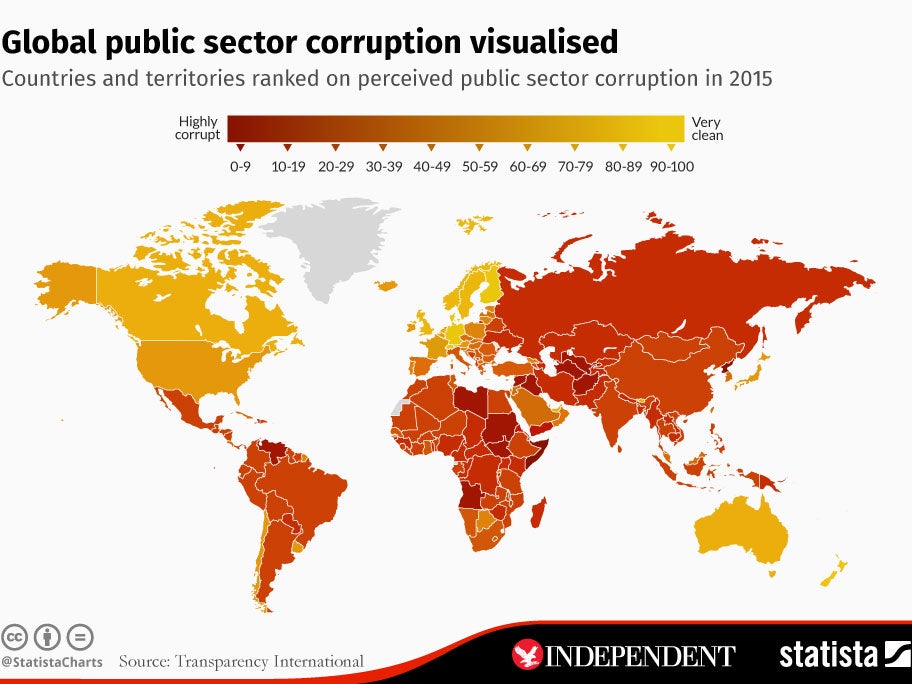Does Britain deserve its top 10 ranking in the Corruption Perceptions Index?
A steady stream of political scandals has exposed a worrying complacency at the heart of British politics

Your support helps us to tell the story
From reproductive rights to climate change to Big Tech, The Independent is on the ground when the story is developing. Whether it's investigating the financials of Elon Musk's pro-Trump PAC or producing our latest documentary, 'The A Word', which shines a light on the American women fighting for reproductive rights, we know how important it is to parse out the facts from the messaging.
At such a critical moment in US history, we need reporters on the ground. Your donation allows us to keep sending journalists to speak to both sides of the story.
The Independent is trusted by Americans across the entire political spectrum. And unlike many other quality news outlets, we choose not to lock Americans out of our reporting and analysis with paywalls. We believe quality journalism should be available to everyone, paid for by those who can afford it.
Your support makes all the difference.It’s an important question.
On the one hand, the Prime Minister’s personal commitments on corruption, the introduction of a national Anti-Corruption Plan and an improved record at the Serious Fraud Office are positive steps. These have likely contributed to the fact that UK has scored a top 10 place in Transparency International’s Corruption Perceptions Index for the first time in more than a decade.
But there are good reasons why people are sceptical about whether Britain really merits a top-ten ranking: overseas bribery by UK companies, the laundering of corrupt money through the City, the lax regulation and lack of transparency in British-controlled tax havens, to say nothing of corruption scandals here in the UK.
And it is important to remember what this index actually measures – just perceptions, and only of corruption within the public sector.
Corruption is a global phenomenon, and no country is immune to its effect. In today’s world corruption taking place in the UK will often have its biggest impact on people overseas. Money laundered through the UK means less money for schools, hospitals and infrastructure for millions of people elsewhere in the world. Corruption also damages the UK, often operating in invisible ways that tilt the system in favour of those who already have power.
A steady stream of political scandals has exposed a worrying complacency at the heart of British politics. In fact, many of the recent lobbying scandals have fallen within the rules, demonstrating that the current regulatory regime is woefully inadequate. Transparency International has identified 39 lobbying loopholes across UK political institutions that open the door to corrupt activity. The gaps need to be closed.
The Prime Minister has, quite rightly, spoken out about the need to combat corruption and gained credentials on the international stage by promoting the idea that good governance should be included in the new Sustainable Development Goals.
But in order to be credible, the UK must get its own house in order. In particular, the Government needs to clean up British politics and stop the UK being a safe haven for the corrupt.
The Prime Minister has announced that he will host a global anti-corruption summit this year. Many will be looking towards this event to deliver results. 2016 will be the year when we find out if the promising rhetoric turns into action.
Rachel Davies is Head of Advocacy & Research for Transparency International
Join our commenting forum
Join thought-provoking conversations, follow other Independent readers and see their replies
Comments